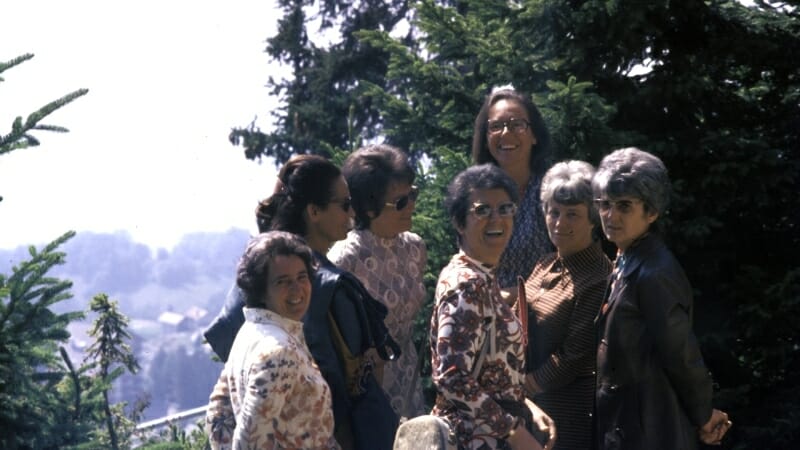 The first Focolare had an actual experience which was an application of this “being the first to love”. It was not always easy for a group of girls to live love radically, especially at the beginning. We were like other people, even though we were sustained by a special gift from God. Dust could settle on us as well, on our rapport with one another, and our unity could wilt. That happened for example upon discovering others’ faults and imperfections. When there was judgment, the flow of reciprocal love got cold. One day, we thought of making a pact among us to counter this situation. We called it the “pact of mercy”. We decided to see our neighbor in a very new way when we met him or her each morning (in the Focolare, at school, at work…), really forgetting their imperfections, their defects, covering everything with love. This meant approaching everyone with this complete amnesty in our heart, with this universal forgiveness. Everyone took this strong commitment together. It helped us to always be the first to love, imitating our merciful God who forgives and forgets. We are now sure that the Movement would not even have made it from Trent to Rovereto if it were not for this daily pact of forgiveness. Practically, the Movement would not have had the energy needed to spread. Chiara Lubich, Love of neighbor, to the Muslim friends of the Focolare Movement, Castel Gandolfo, 1st November 2002 (excerpt).
The first Focolare had an actual experience which was an application of this “being the first to love”. It was not always easy for a group of girls to live love radically, especially at the beginning. We were like other people, even though we were sustained by a special gift from God. Dust could settle on us as well, on our rapport with one another, and our unity could wilt. That happened for example upon discovering others’ faults and imperfections. When there was judgment, the flow of reciprocal love got cold. One day, we thought of making a pact among us to counter this situation. We called it the “pact of mercy”. We decided to see our neighbor in a very new way when we met him or her each morning (in the Focolare, at school, at work…), really forgetting their imperfections, their defects, covering everything with love. This meant approaching everyone with this complete amnesty in our heart, with this universal forgiveness. Everyone took this strong commitment together. It helped us to always be the first to love, imitating our merciful God who forgives and forgets. We are now sure that the Movement would not even have made it from Trent to Rovereto if it were not for this daily pact of forgiveness. Practically, the Movement would not have had the energy needed to spread. Chiara Lubich, Love of neighbor, to the Muslim friends of the Focolare Movement, Castel Gandolfo, 1st November 2002 (excerpt).
Be available to listen
Be available to listen




0 Comments